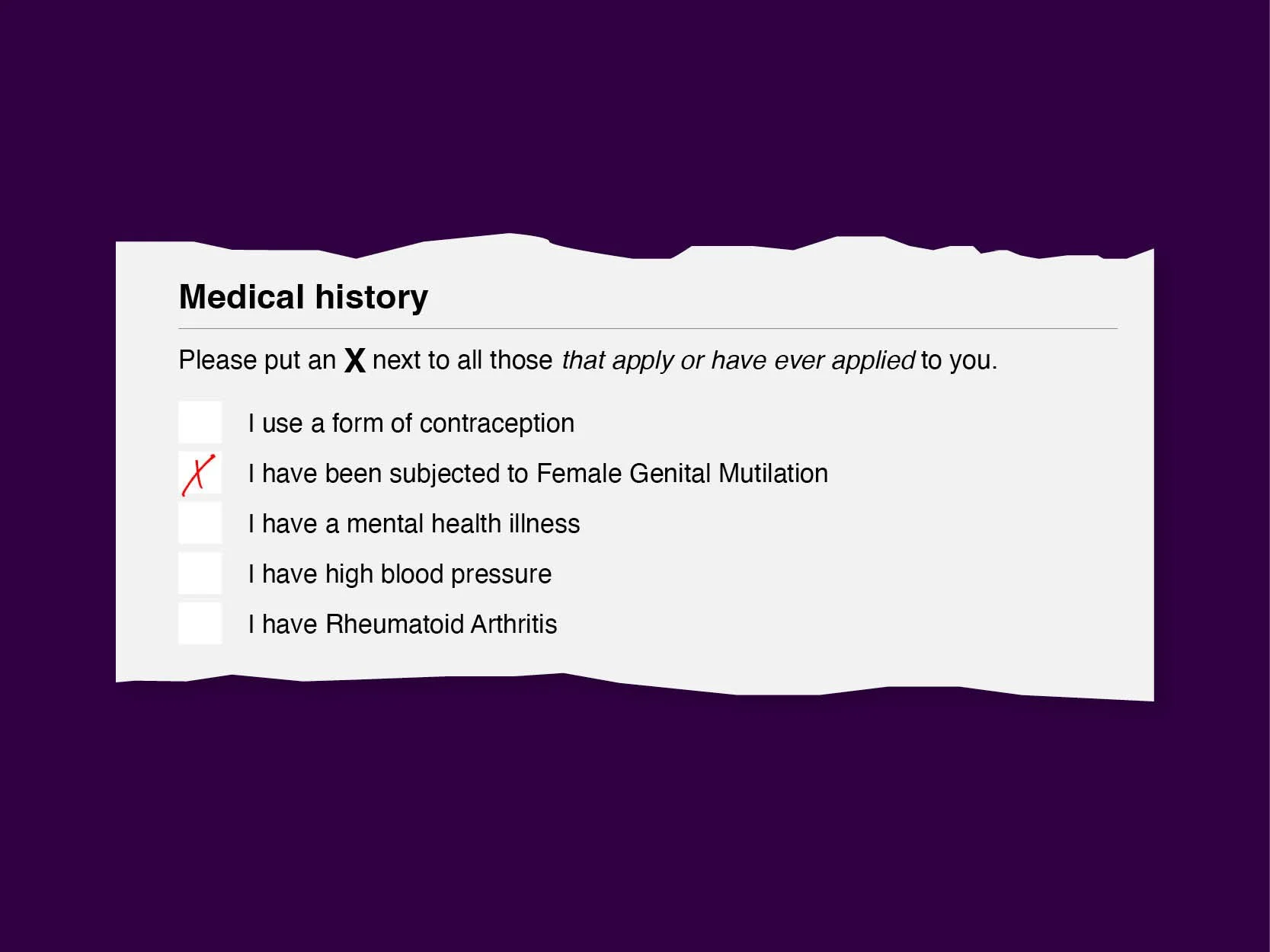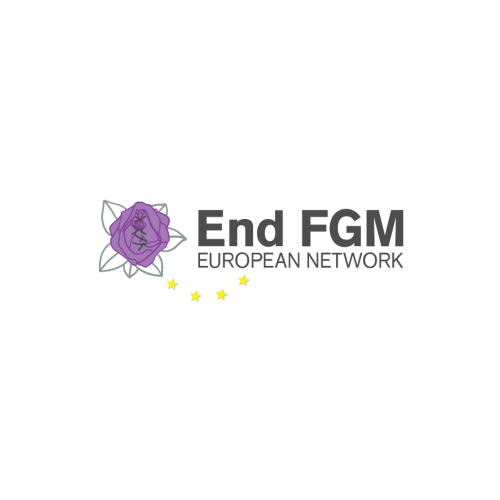We have a problem.
The UK is suffering from FGM/C data poverty. Without accurate data, key decision-makers and support providers are unable to reach FGM/C survivors, provide meaningful services, or end this form of abuse for good. Only one question needs to be asked.
One question in practice
In 2015, a data collection scheme was rolled out at North West NHS Trust London, led by our Co-Founder Hoda Ali and other clinical professionals to address the Trust’s lack of data on the scale of FGM/C. All female patients were invited to fill out a simple, confidential form, without a confronting conversation or traumatic consultation. This was conducted during primary and urgent healthcare visits.
The tick-box format ensured every visiting female patient was asked, no one was racially profiled, and any assumptions based on the patient's background were eliminated.
The scheme retrieved significant data on FGM/C, previously unattained by any other organisation. Due to its success, the questionnaire was implemented as a permanent policy in the hospital’s safeguarding programme and the one question continues to be asked in patient forms.
Currently, a healthcare professional will only ask verbally if a woman has been subjected to FGM/C, and only if they suspect something, or feel there is a reason to do so. This may be based on findings from a physical examination or from information provided by the patient. More than half of the survivors we work with reported not being asked this question, and a further 72% reported that they had never received healthcare support because of FGM/C.
Asking a woman or girl if they have been subjected to FGM/C is not a mandatory practice in the UK. Most survivors live silently with FGM/C for a large part of their lives.
Hoda Ali
Sexual health nurse and co-founder of The Vavengers
“Thanks to our clinic asking this simple question, many survivors of FGM/C were finally supported as well as re-learning it as a form of abuse. Many new cases were prevented, data was collected and we gained invaluable insight. Most importantly, we reached women and girls that would otherwise have gone unnoticed.”
The problem
-
An estimated 137,000 women and girls live with FGM/C in England and Wales and a further 60,000 girls under 15 are at risk.
-
Cases are often only detected if a survivor receives a physical examination, and this is usually during pregnancy.
-
When cases go undetected, countless women and girls do not receive the healthcare and support they need.
-
Between 2019 and 2020, 6,590 cases were identified in the UK during an NHS appointment.
-
The average age of survivors identified was 32 years old, and 98% of them reported that they had been subjected to FGM/C at least 10 years prior.
What happens when she isn’t asked?
The appropriate healthcare is not provided
A survivors’ wellbeing is not supported
A survivors may not be informed that what happened to them was illegal and a form of abuse
Another child risks being cut
Dr Leyla Hussein OBE, survivor and activist, didn’t know FGM/C was abuse until her nurse asked her about it. In our 2019 film campaign What if You Knew (left), she tells her story.
“If I hadn’t been asked that question, my daughter would have been cut” – Leyla Hussein, What if you Knew.
Endorsed by
One question is just the beginning…
-
1. Ask One Question
Add the one question “Have you been subjected to FGM/C?” to our national database and all patient forms across GPs, healthcare clinics and A&E check in points.
-
2. Make reconstructive surgery available under the NHS
UK to catch up to exemplary inclusive healthcare for survivors provided by a number of European countries by providing the option of reconstructive surgery for FGM/C survivors.
-
3. Offer sustained mental health services to FGM/C survivors
FGM/C is a lifelong trauma. We need FGM/C survivors in the UK to feel included in the mental health system and receive sustained mental health support tailored to their specific needs.
Do you support the One Question campaign? Pledge today.
You can read our full report on the healthcare inequalities faced by FGM/C survivors here. This report was delivered at a meeting at the House of Lords on 22nd May 2023 to NHS Chief Nursing Officer for England, Dame Ruth May and the office of NHS Chief Executive Officer Amanda Pritchard.
Credit
Healthcare inequalities report, campaign deck and campaign page written and researched by Ellie Melvin, Communications and Campaigns Manager at The Vavengers.
The original One Question Campaign was completed by The Vavengers founding members including Soraya Ali, Mabel Evans, Hoda Ali and Megan Barclay. Its creation process was supported pro-bono by Purpose London. The present One Question Campaign has been developed further and rolled out by the current Vavengers team.
What if You Knew campaign was produced by The Vavengers with Janet Fyle MBE, Aissa Edon and Dr Leyla Hussein OBE acting as themselves (FGM/C survivors) and as professionals working to end FGM/C.








